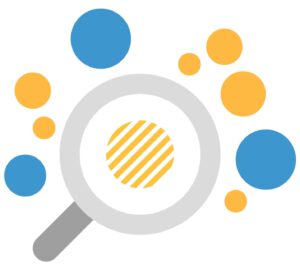We assume that, like a knife dulled by repeated use, as we age our brain loses the sharp edge of youth, but the truth is more complicated than that.
Some brain functions get worse; some get better.
Looking to add another layer of data for scientists studying the relationship between genetics, aging and the brain, 23andMe is experimenting with collecting data through half a dozen new cognitive games. Unlike surveys, these cognitive games measure specific aspects of brain aptitude directly, by collecting data about research participants’ choices and abilities as they perform the game tasks.
Developed with the help of Laura Germine, Ph.D., Director of the McLean Hospital Laboratory for Brain and Cognitive Health Technology and a psychiatry researcher at Harvard Medical School, the games will test attention, focus, processing speed, motor skills and risk-taking, and help researchers gauge various aspects of cognitive function. This kind of data can help those studying psychiatric and neurological conditions as well as the aging process among other things.
In prior research, Germine has found that although some brain function decline as we age, some functions improve
“We found different abilities really maturing or ripening at different ages,” she told the New York Times last year.
Germine said, “It’s a much richer picture of the life span than just calling it aging.”
23andMe’s purpose for using these games is to study the relationship between those brain changes and genetics.
In the past, genetic factors have been correlated with cognitive attributes and ability. Using these new tools to gather data on cognitive ability adds a new layer to the kind of phenotypic information 23andMe researchers can gather for their work, and potentially share with 23andMe’s over 2 million customers through new insights from that data. 23andMe’s unique research model invites customers to participate in research if they wish – customers can opt out of research without impacting their 23andMe experience.
Researchers can then use the resulting aggregated and de-identified data to study the genetics underlying disease.
As part of that process, 23andMe asks customers all sorts of questions from whether they can curl their tongues to whether they’ve ever had cancer. The answers to those questions, combined with genetic information, give our researchers a tremendous resource that has already led to important genetic findings.
This new information, using games to track changes in focus or processing speed or motor skills, for example, could help researchers learn more detailed information about people’s cognitive function.
The hope is that with the launch of cognitive games, our researchers will be able to gather important new data points for learning what role genetics may play in brain function, personality, and the aging process, as well as how those abilities change over time.
And since when has generating research data been this fun for the participant too?



